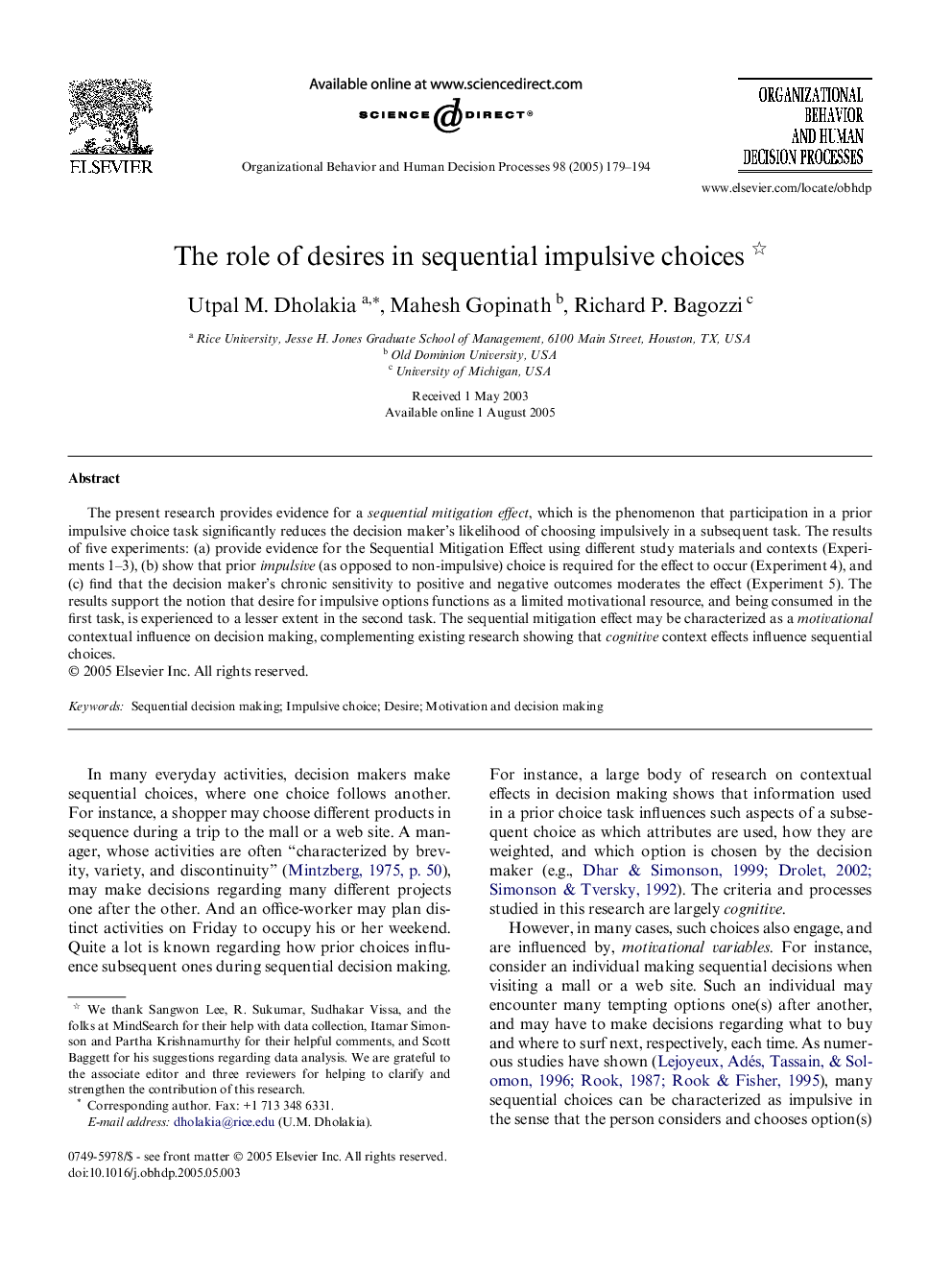| Article ID | Journal | Published Year | Pages | File Type |
|---|---|---|---|---|
| 10439882 | Organizational Behavior and Human Decision Processes | 2005 | 16 Pages |
Abstract
The present research provides evidence for a sequential mitigation effect, which is the phenomenon that participation in a prior impulsive choice task significantly reduces the decision maker's likelihood of choosing impulsively in a subsequent task. The results of five experiments: (a) provide evidence for the Sequential Mitigation Effect using different study materials and contexts (Experiments 1-3), (b) show that prior impulsive (as opposed to non-impulsive) choice is required for the effect to occur (Experiment 4), and (c) find that the decision maker's chronic sensitivity to positive and negative outcomes moderates the effect (Experiment 5). The results support the notion that desire for impulsive options functions as a limited motivational resource, and being consumed in the first task, is experienced to a lesser extent in the second task. The sequential mitigation effect may be characterized as a motivational contextual influence on decision making, complementing existing research showing that cognitive context effects influence sequential choices.
Related Topics
Social Sciences and Humanities
Business, Management and Accounting
Marketing
Authors
Utpal M. Dholakia, Mahesh Gopinath, Richard P. Bagozzi,
